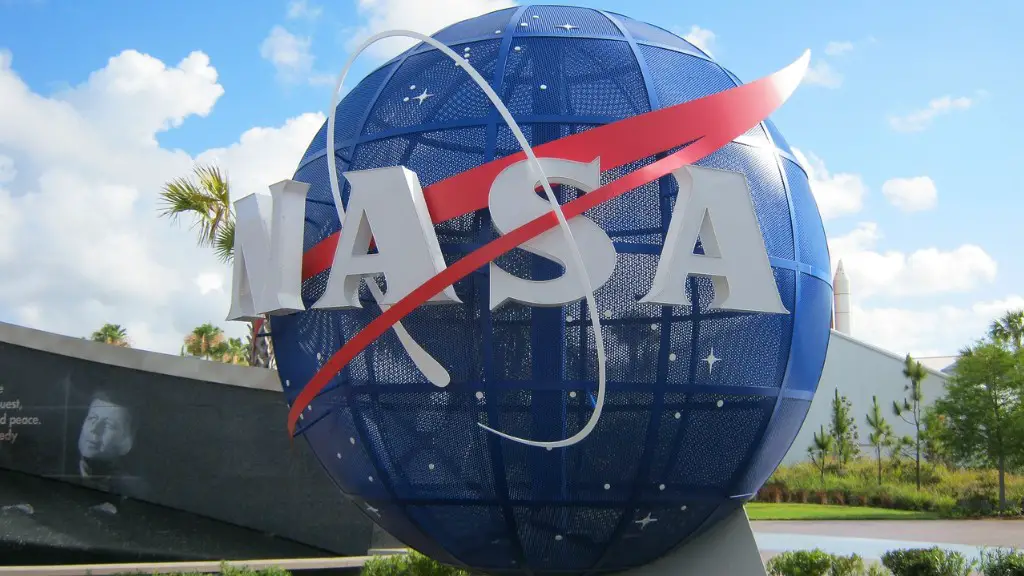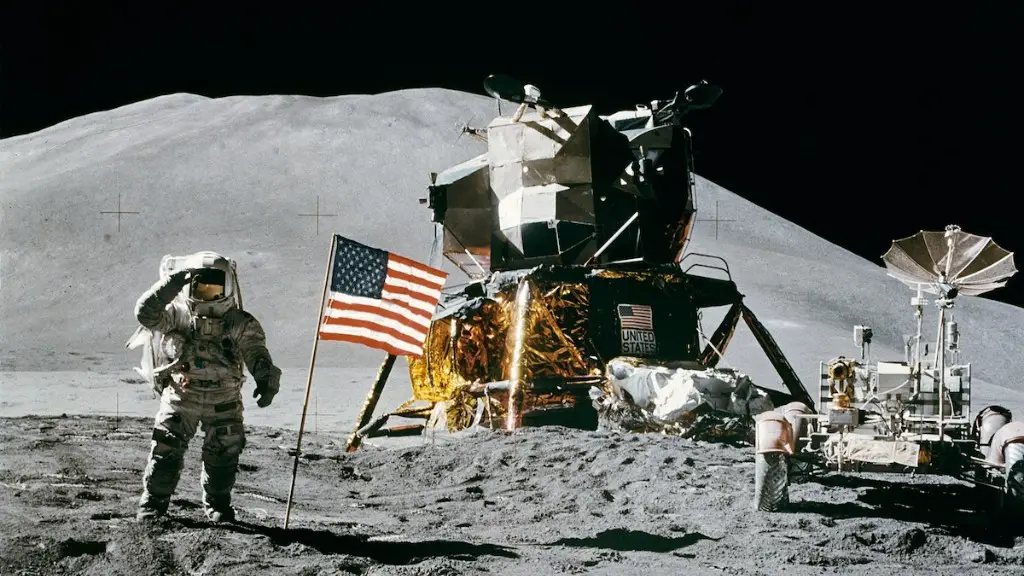Why NASA Stopped Exploring The Ocean: A Deep Dive Into The Blue Abyss
So here’s the thing—NASA and the ocean? Yeah, they used to be tight, but something changed. Why NASA stopped exploring the ocean is a question that’s been swirling around like an underwater current. It’s not just about budget cuts or shiny new rockets; it’s a tale of priorities, science, and the never-ending tug-of-war between space and sea. Stick around because this story’s got twists you won’t see coming.
Picture this: you’re NASA, the world’s most iconic space agency, and you’ve got your eyes set on Mars, the Moon, and beyond. But wait—there’s this big blue ball right here on Earth, filled with mysteries deeper than any crater on the Moon. So why did NASA pivot away from the ocean? Was it a calculated move, or just a case of "out of sight, out of mind"? Let’s dive in, shall we?
This article isn’t just about pointing fingers—it’s about uncovering the truth. We’ll break down the reasons, explore the science, and even throw in some juicy stats. If you’re curious about why NASA stopped exploring the ocean, you’re in the right place. Let’s get started!
Read also:Banflixcom The Ultimate Streaming Destination Youve Been Waiting For
Here’s a quick guide to what we’ll cover:
- The History of NASA and Ocean Exploration
- Budget Constraints: The Elephant in the Room
- Technological Challenges: Why Space Wins
- Scientific Priorities: The Ocean vs. Space
- Public Perception: What Do People Care About?
- Collaboration: Who’s Picking Up the Slack?
The History of NASA and Ocean Exploration
Back in the day, NASA wasn’t all about rockets and rovers. Believe it or not, they had a thing for the ocean. Projects like the Tektite program in the late 1960s saw astronauts diving into the depths to simulate space missions. Cool, right? But as time went on, the focus shifted, and the ocean took a backseat. Why? Let’s explore.
Early Days: When NASA Loved the Ocean
In the 1960s and 70s, NASA was all about multidisciplinary research. The Tektite program was a game-changer, allowing scientists to study how humans could live and work underwater. It was like a space mission, but with less gravity and more water pressure. The data collected during these missions was invaluable, but it wasn’t enough to keep NASA hooked.
Changing Priorities: The Shift to Space
By the 1980s, NASA’s priorities had shifted. The Space Shuttle program was in full swing, and the allure of space exploration was hard to resist. The ocean, while fascinating, didn’t have the same wow factor. Budgets were tight, and every dollar had to count. Space exploration offered more bang for the buck—or so it seemed.
Budget Constraints: The Elephant in the Room
Money talks, and in NASA’s case, it shouted. Budget constraints played a massive role in why NASA stopped exploring the ocean. Let’s break it down.
The Numbers Don’t Lie
NASA’s budget for space exploration dwarfs its ocean-related spending. According to a 2021 report, NASA’s annual budget for space exploration is around $23 billion, while ocean research gets a fraction of that. It’s not that NASA doesn’t care about the ocean—it’s just that space is where the big bucks are.
Read also:Jillian Fink A Rising Star In The Spotlight
Where Does the Money Go?
Space missions are expensive. Building rockets, launching satellites, and sending humans to the Moon cost a pretty penny. Ocean exploration, while cheaper in comparison, still requires significant investment. Submersibles, research vessels, and advanced technology don’t come cheap. When push comes to shove, space exploration often takes precedence.
Technological Challenges: Why Space Wins
Technology plays a big role in why NASA stopped exploring the ocean. Space exploration has seen rapid advancements, while ocean tech hasn’t kept pace. Here’s why.
Space Tech: Faster, Better, Stronger
Rockets, rovers, and satellites are getting smarter by the day. Advances in materials science, propulsion, and AI have made space exploration more feasible than ever. Meanwhile, ocean tech is still grappling with challenges like corrosion, pressure, and communication. It’s not that ocean technology is bad—it’s just not as flashy as space tech.
The Deep-Sea Dilemma
Exploring the ocean is hard. Really hard. The pressure at the bottom of the Mariana Trench is over 1,000 times greater than at sea level. That’s like having an elephant standing on your thumb. Building equipment that can withstand these conditions is no small feat. Space, on the other hand, has its own challenges, but they’re more predictable.
Scientific Priorities: The Ocean vs. Space
Science drives NASA’s decisions, and sometimes the ocean just doesn’t make the cut. Here’s why.
Big Questions: Space Takes the Lead
Space exploration tackles some of the biggest questions in science: Are we alone in the universe? How did life begin? These are questions that capture the imagination of scientists and the public alike. Ocean research, while crucial, often focuses on more niche topics like marine biodiversity and climate change. Important? Yes. Sexy? Not so much.
Global Impact: The Ocean’s Quiet Revolution
That’s not to say ocean research isn’t impactful. The ocean regulates the Earth’s climate, provides food for billions, and is home to countless species. But these benefits are often overlooked in favor of the more glamorous pursuits of space exploration. It’s a classic case of perception vs. reality.
Public Perception: What Do People Care About?
Let’s face it—space is cool. Rockets launching into the sky, astronauts floating in zero gravity, and the possibility of finding alien life—it’s all stuff of dreams. The ocean, while fascinating, doesn’t have the same appeal. Here’s why.
The Space Race Legacy
The Space Race of the 1960s set the tone for how we view space exploration. It was a time of national pride and technological achievement. The ocean, while equally mysterious, never quite captured the public’s imagination in the same way. Sure, we’ve got documentaries and Jacques Cousteau, but it’s not the same as landing on the Moon.
Media Matters
Media plays a huge role in shaping public perception. Movies, TV shows, and even video games often focus on space exploration. Think "Interstellar," "The Martian," and "Star Wars." Meanwhile, ocean-themed media is often relegated to nature documentaries. It’s not a fair fight.
Collaboration: Who’s Picking Up the Slack?
While NASA may have stepped back from ocean exploration, others have stepped up. Here’s how.
NOAA: The Ocean’s Champion
The National Oceanic and Atmospheric Administration (NOAA) has taken the lead in ocean research. They conduct studies on climate, marine life, and ocean health, filling the gap left by NASA. It’s not the same as having NASA involved, but it’s a start.
Private Sector: A New Era
Private companies like OceanGate and Nautilus Live are making waves in ocean exploration. With advancements in technology and a focus on innovation, they’re proving that the ocean is worth exploring. Maybe NASA will take notice and get back in the game.
Why the Ocean Still Matters
Even though NASA stopped exploring the ocean, it’s still a vital part of our planet. Here’s why.
The Ocean’s Role in Climate Change
The ocean absorbs about 30% of the carbon dioxide we produce, making it a crucial player in regulating the Earth’s climate. Without it, our planet would be a much hotter place. NASA may not be exploring the ocean, but its impact on climate change is undeniable.
Untapped Resources
The ocean is home to untapped resources like rare minerals, potential new medicines, and even renewable energy sources. Exploring these resources could have huge benefits for humanity. It’s a treasure trove waiting to be discovered.
Conclusion: Why NASA Stopped Exploring the Ocean
So there you have it—the story of why NASA stopped exploring the ocean. It’s a tale of budget constraints, technological challenges, and shifting priorities. But that doesn’t mean the ocean doesn’t matter. It’s still a vital part of our planet, and its mysteries are waiting to be uncovered. Who knows—maybe one day NASA will come back to the ocean and give it the attention it deserves.
What do you think? Should NASA revisit ocean exploration, or is space the only way forward? Leave a comment below and let’s keep the conversation going. And if you enjoyed this article, don’t forget to share it with your friends. Together, we can dive deeper into the mysteries of our planet.
Article Recommendations


